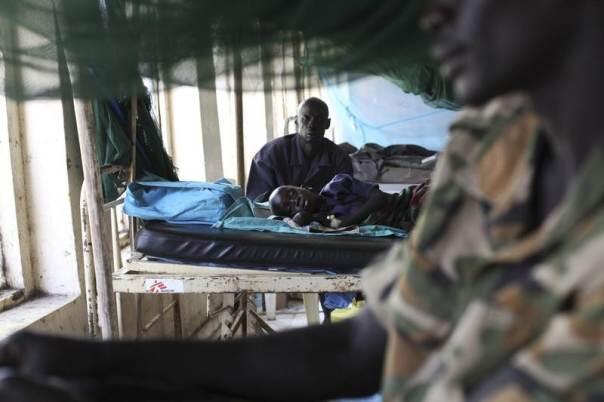In sub-Saharan Africa where malaria is widespread, mosquito nets have become virtual lifelines. When treated with insecticides, the nets are highly effective at preventing mosquitoes from biting people. Their extensive use has proved to be a boon, especially in Africa, by preventing more than 400 million malaria cases in the last 15 years.
Insecticide-treated nets and spraying of homes have proved formidable tools to fight malaria. From 2001 to 2013, deaths from malaria dropped by more than half. From 2000 to 2015, the number of malaria cases has declined by 670 million cases. Together, insecticide-treated mosquito nets and indoor spraying have contributed to 80 per cent of these averted malaria cases.
Concern is growing, however, that hard fought gains over the past decade could be undermined by insecticide resistance. With frequent exposure, mosquitoes are becoming resistant to commonly used insecticides.
As a result, 64 countries affected by malaria have reported resistance to at least one insecticide. Indoor spraying of walls has fallen by 40 per cent in the past four years due to increased resistance to available products and limited cost-effective alternatives.
If pyrethroids, the main insecticides used to treat nets and for spraying, lose their efficacy, it could lead to 120,000 more deaths in children in Africa per year. A further 26 million malaria cases could result, incurring US $30-60 million in diagnostic and treatment costs per year. If no action is taken, experts predict that resistance will become entrenched taking a heavy toll that could prove difficult or even impossible to undo.
The time to act is now. According to modelling by the Bill and Melinda Gates Foundation, the costs of eradicating malaria would be US $90-$120 billion between 2015 and 2040 – roughly double the current funding.
Despite recent increases in international donations, additional funding would help save 11 million lives and deliver US $2 trillion in economic benefits, thanks to productivity gains and health savings.
To do so, countries need strategies to contain resistance, and they need to implement new solutions to fight it. There is, however, no one-size-fits-all strategy to fight resistance. Rather, with multiple resistance types and multiple species of Anopheles mosquitoes that transmit malaria, it is best to design strategies that are adapted to local circumstances. Measuring resistance in its various manifestations can help although the right kind of data is currently not being collected. For this reason, we must collect better data about resistance so we can make the best use of new tools.
The World Health Organization (WHO) recommends the rotation of insecticides for indoor spraying so that mosquitoes do not have time to adapt easily to them and develop resistance. Yet there are not enough varieties of insecticides to effectively implement rotation. Additionally, manufacturers are deterred by the length of time it takes to develop and approve new products, as well as high production costs and the risk of low uptake.
Urgent reforms as well as stronger partnerships can ensure that new products reach those in need, at prices that are affordable. Furthermore, incentives for manufacturers and shorter time-periods for developing and approving new insecticides can revitalize the market.
That is why UNITAID is bolstering the central role of new insecticides in controlling malaria. A US $65 million initiative will support countries in obtaining new and effective insecticides at affordable prices to spray walls in homes, so that they are made safe for families during the rainy season when mosquitos are most active. Over four years, the project aims to protect as many as 50 million people from malaria in 16 African countries. More countries will be encouraged to expand spraying. At the same time, accurate forecasting of demand for insecticides could reassure manufacturers and give them the confidence to invest in production.
In addition, UNITAID along with the Innovative Vector Control Consortium (IVCC) and the President’s Malaria Initiative (PMI) plan to promote the uptake of new products, accelerate the speed at which innovations reach markets and provide incentives for manufacturers to continue investing.
The threat of insecticide resistance is one of the main challenges to future progress in the fight against malaria. Unless more effective insecticides are made available, we run the risk of considerable reversals in the fight against malaria. Millions of long-lasting insecticide nets are distributed every year. With new chemicals, these nets can continue to be game-changers well into the next decade.
We face a race against time to save more lives.
We cannot win without encouraging innovation, strengthening collaboration with the private sector and with greater public funding.
Source: REUTERS (Philippe Douste-Blazy is the UN Under-secretary-general in charge of Innovative Financing for Development and the Chairman of UNITAID.)











